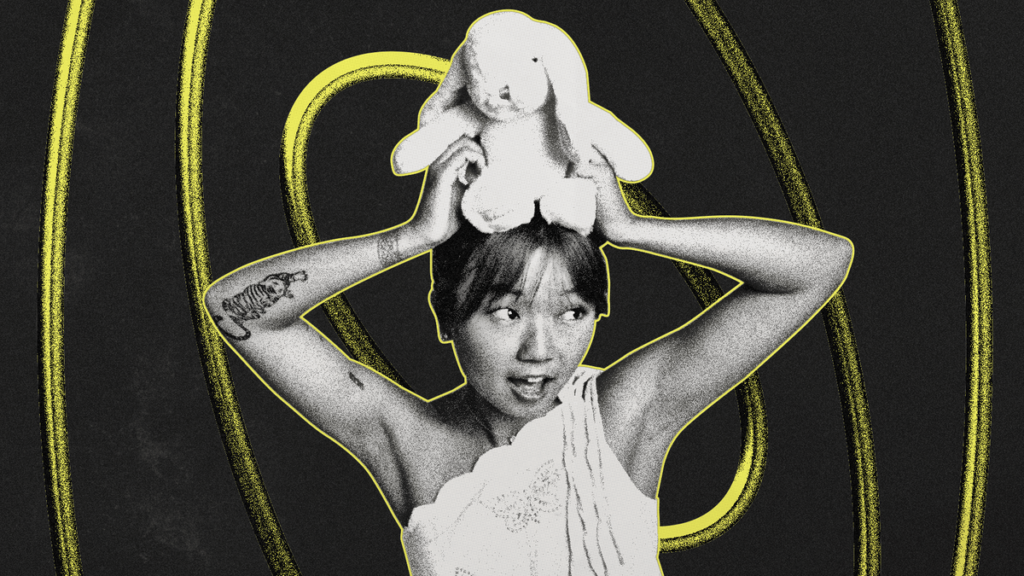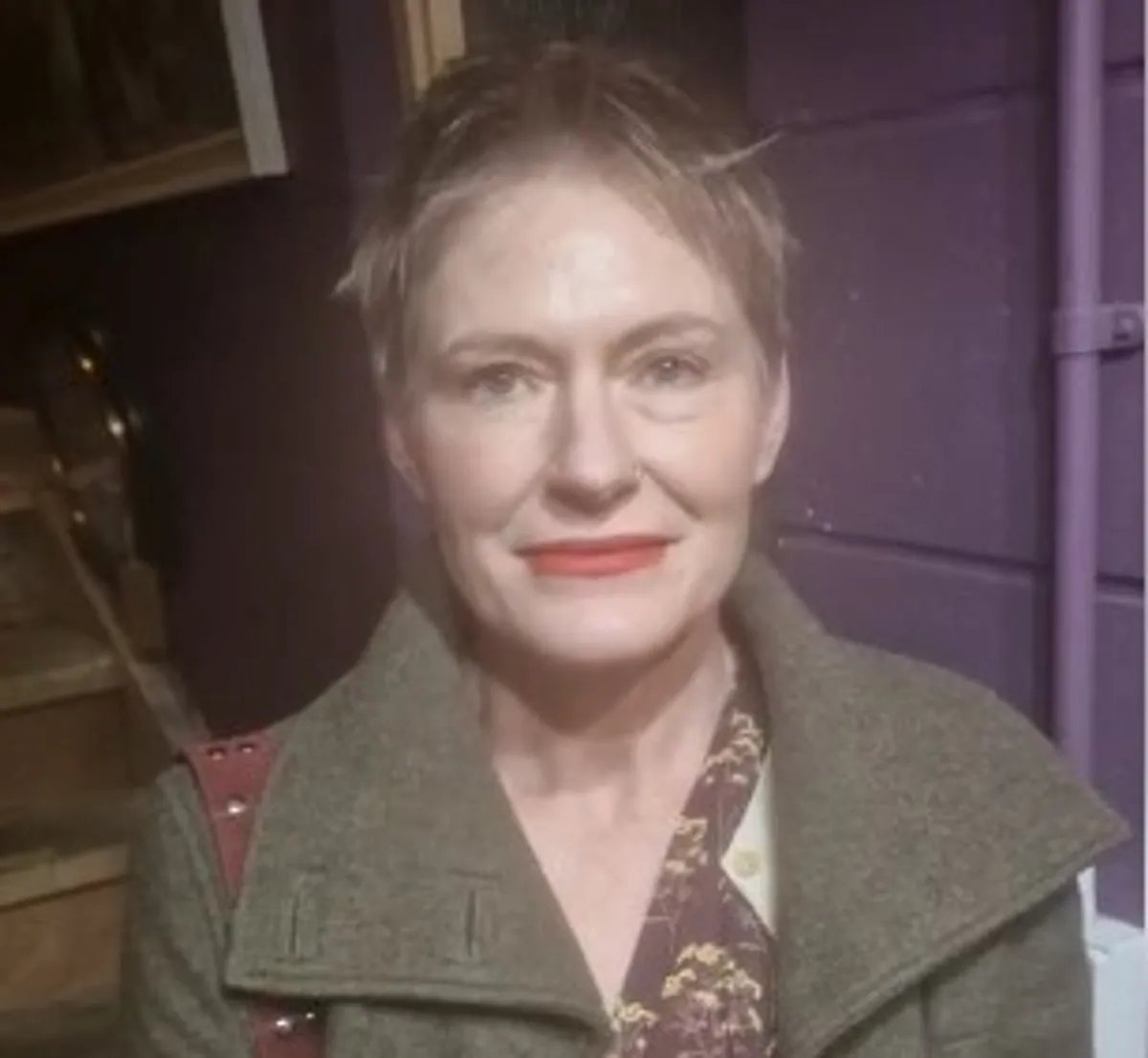The Los Angeles-based artist Tiffany Day, born Tiffany Ruan, serendipitously has a small window to chat. It’s been an “entirely insane week,” as she tells Genius, and she’s been on go-time from 6AM to 9PM, with multiple video and press shoots, a post-production schedule to organize, and a separate deadline with Spotify she has to meet. The day after our call, Day is headed to a festival.
“I broke down quite a bit this past week,” Day says. “But I think this is just the beauty of my career—it ebbs and it flows, and right now, it’s flowing big time, and I have to let it flow.”
By the time this article publishes, Day will have released “HELLA BOY CRAZY,” the lead single from her forthcoming debut LP. Up until this point, she had amassed a passionate fanbase from a handful of one-off tracks, four EPs, and a social media following. Despite the sophisticated and polished production of her songs—the sound wouldn’t be out of place at a nightclub dance floor—the 24-year-old still describes her music as “electric bedroom pop.” As a fiercely independent artist who isn’t currently signed to a label (and she prefers it that way), Day continues to think of herself as a small-town singer-songwriter with a penchant for EDM.
Day was born in Canada, but she moved as an infant to Wichita, Kansas, where the population was majority white. She remembers one Asian supermarket on the other side of town.
“I felt like I was in between two worlds, because I wasn’t accepted by all the white kids, and at the same time, I wasn’t accepted by the mainland Chinese kids [in the foreign exchange program],” she says.
In some ways, Day says, she grew up as a “stereotypical Asian kid,” with piano and violin lessons. Then again, she never felt pressured by her immigrant parents to “be a doctor or a lawyer, or make a shit ton of money.” (She is the youngest of three with two older brothers, both of whom went into computer software development.)
Growing up, Day had a bubbling desire to make music. There had been Easter eggs hiding in plain sight throughout her childhood. At age 11, a teacher complimented her voice after Day sang “Eye of the Tiger” in front of 200 people. There were also roles in high school musical productions, and Day taught herself how to sing by mimicking Miley Cyrus on Hannah Montana and Vanessa Hudgens in High School Musical. Then, as a junior, she unexpectedly went viral after she posted a clip of herself singing Leonard Cohen’s “Hallelujah” into a well on a school trip in Italy.
Building on this momentum, Day’s mom encouraged her to start a YouTube channel for her music. The timing seemed right. Day had started learning guitar chords and progressions by watching online tutorials. (Her oldest brother gifted her his acoustic Ibanez, though she admits to initially picking up the guitar because an older boy she had a crush on played.) The first song she learned to play, over one weekend, was Adele’s “Hello.”
“It was a phase in my life when I was so addicted to playing the guitar,” Day says of her era of uploading videos. “It truly felt like a drug.”
By the end of her senior year, Day had become a cover artist with more than 500,000 subscribers. (Her following has since swelled to over 970,000.) She had also started composing original songs. Day eventually enrolled at Loyola Marymount University in Los Angeles, intending to make music part-time, Hannah Montana-style. By day, she was an undergrad studying communications. By night, she was in studio sessions.
“I brought in a song that I had written at home in Kansas,” Day says, looking back on her first-ever studio session, which occurred when she was 18. “The producers and I sat there and converted it from a bedroom recording to an actual demo. The adrenaline after that first night in my Zipcar—I felt so fucking excited that it’s possible to make music with people in L.A.”
In one of her breakout tracks, “IF I DON’T TEXT YOU FIRST,” Day sings fluidly and effortlessly, dipping in and out of falsetto while playfully bouncing off the track’s unexpected syncopation, lamenting a half-assed, one-sided relationship.
If I don’t text you first
I don’t think that way we would ever talk at all
And I don’t know what’s worse
Being with you or not being with you at all
Throughout her undergrad years, Day released a four-EP series, with each installment representing one year of her time in college. (All four EPs have recently been packaged onto a single vinyl record, The EP Collection.) The Recovery Project (2021) is about recovering from the loneliness and homesickness she experienced from moving away; The Dependency Project (2021) follows Day’s first romantic “situationship” and the dependency issues she encountered; The Renewal Project (2022) recaps her post-breakup healing journey and how she learned to spend time alone (during the pandemic, no less); and The Gratitude Project (2023) is a heart-forward dedication to all of Day’s friends who “lifted me the way they did, even when I’ve ignored them for so long while I was in a relationship,” she says.
Following the release of her final EP, Day nearly single-handedly produced her first North American tour. She handled all of the logistical details, including booking venues and Airbnbs, programming the shows, managing her wardrobe and makeup, and coordinating merch. She also took turns driving the tour van, which bussed her backing band and a small crew. It was an exhaustive and costly endeavor that Day felt was a necessary step in career.
“I think I’m probably around $10,000 in credit card debt right now,” she says in The Making of The Gratitude Tour, a mini-documentary about her experience on the road. Day’s unwavering flair for bringing her grandiose, pop-star vision to life—most of the time entirely on her own and with few resources—continues to set her apart in an industry that is generally unforgiving to indie artists. Day always has a plan, chaos be damned.
“I know I could have more people doing things for me, but I’m a bit of a control freak,” Day says. “I’m really specific and annoying with notes. If I make a song with someone and I want it to sound a certain way, I’ll ask them for the stem so I can do it myself.”
Day also acknowledges that her anxiety, OCD diagnosis, and attachment issues certainly don’t help. “At first I felt bad about it, but then I thought, ‘Well, this is my art. Once it’s out in the world, you can’t change it.’ So why would I be lazy about it? I can’t let things slide.”
Day hints that the new album will explore themes of growth, aging, and mortality. But with her lead single, “HELLA BOY CRAZY,” Day is in full-force party mode.
You taught me love’s not fearing being alone
It’s a fair type of love, not a scared type of love
Know you’re there type of love
Know you care type of love
Answered prayers type of love
Self-aware type of love
I was hella boy crazy but that boy saved me
She’s singing about the boyfriend she credits with relaxing some of her codependency issues. Bouncy downbeats thump while synths soar and swerve in between choruses. Day’s vocals flirt in the ear like a secret you can’t keep to yourself. This is a summertime bop. To get the sound on her album the way she wanted, Day enlisted a handful of producers, including Jack Hallenbeck and Jeff Melvin (a.k.a. Melvv), who helped her to elevate her electro sound while persevering the intimate essence of bedroom pop.
She also cites Porter Robinson and hyperpop as influences but stays firmly rooted in pop. While she’s in the run-up to her forthcoming release, Day, who operates on a Type-A brain, tries to remember to be easier on herself and not get stressed to a point where she’s “up at six in the morning, heavy breathing, cortisol levels spiked,” as she has in the past.
“I read a quote on Instagram from a photographer named Ethan Tran who said you can’t beat yourself up if every single thing you make isn’t perfect because if it was perfect, then we wouldn’t make things anymore,” she says.
When the time comes, Day will release her self-funded album on her own terms, as she has always done. She’s well aware that she could partner with a label, but she’s protective of what she’s created and plans to hold out for an option that makes sense; most of the deals in the music industry do not financially place the artist first.
“I prioritize my art more than getting any sort of check,” Day says, even though she’s “so used to being in debt” that she jokes she’s surprised her credit score is as good as it is.
Day recalls being presented with deals where she’d have to give away her catalog, forfeit creative control, or adhere to a label’s strict release schedule. Some would only cover the purchase of the album and not include the mixing and mastering that would need to be done. Day works with a tiny but mighty team that includes her manager, Sammy Seaver, and creative director, Ally Wei, both of whom she says are so efficient and talented that she doesn’t feel the need or pressure to work with a whole label.
“I still get stressed out about money, but I’ve accepted this as the reality until I get my footing,” she says. “It’s the price I pay, and I’m okay with it, at least that’s what I tell myself. What’s the alternative?”






